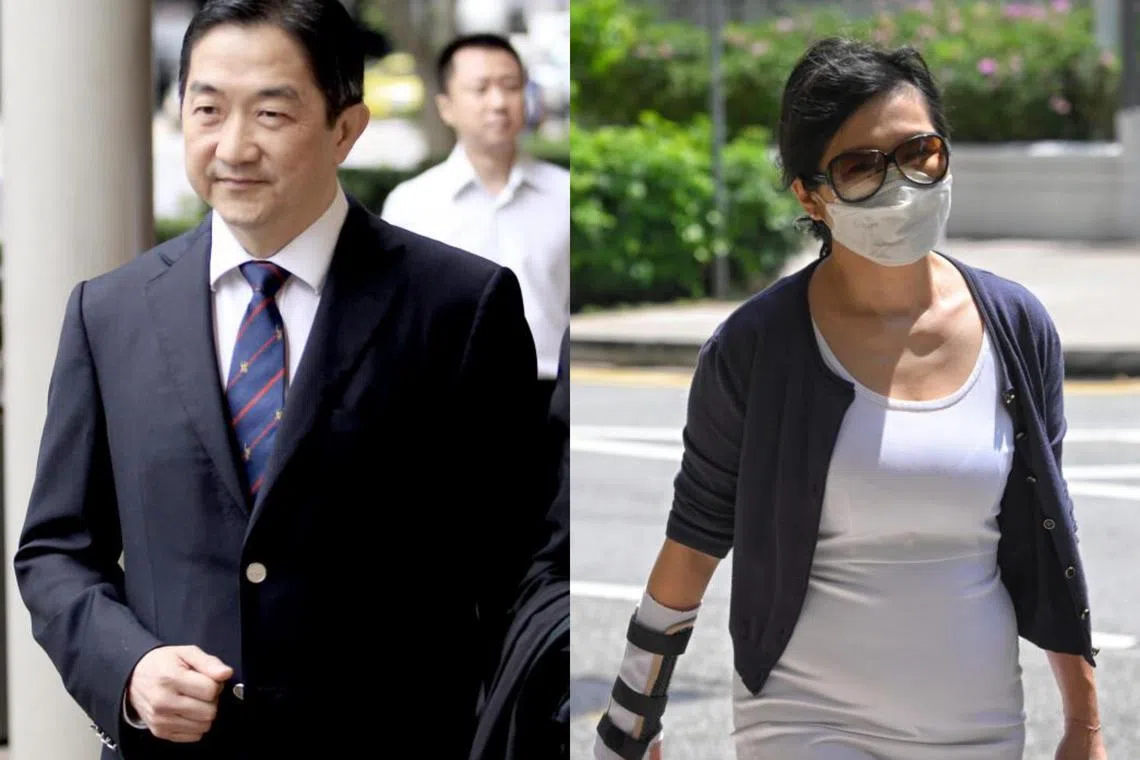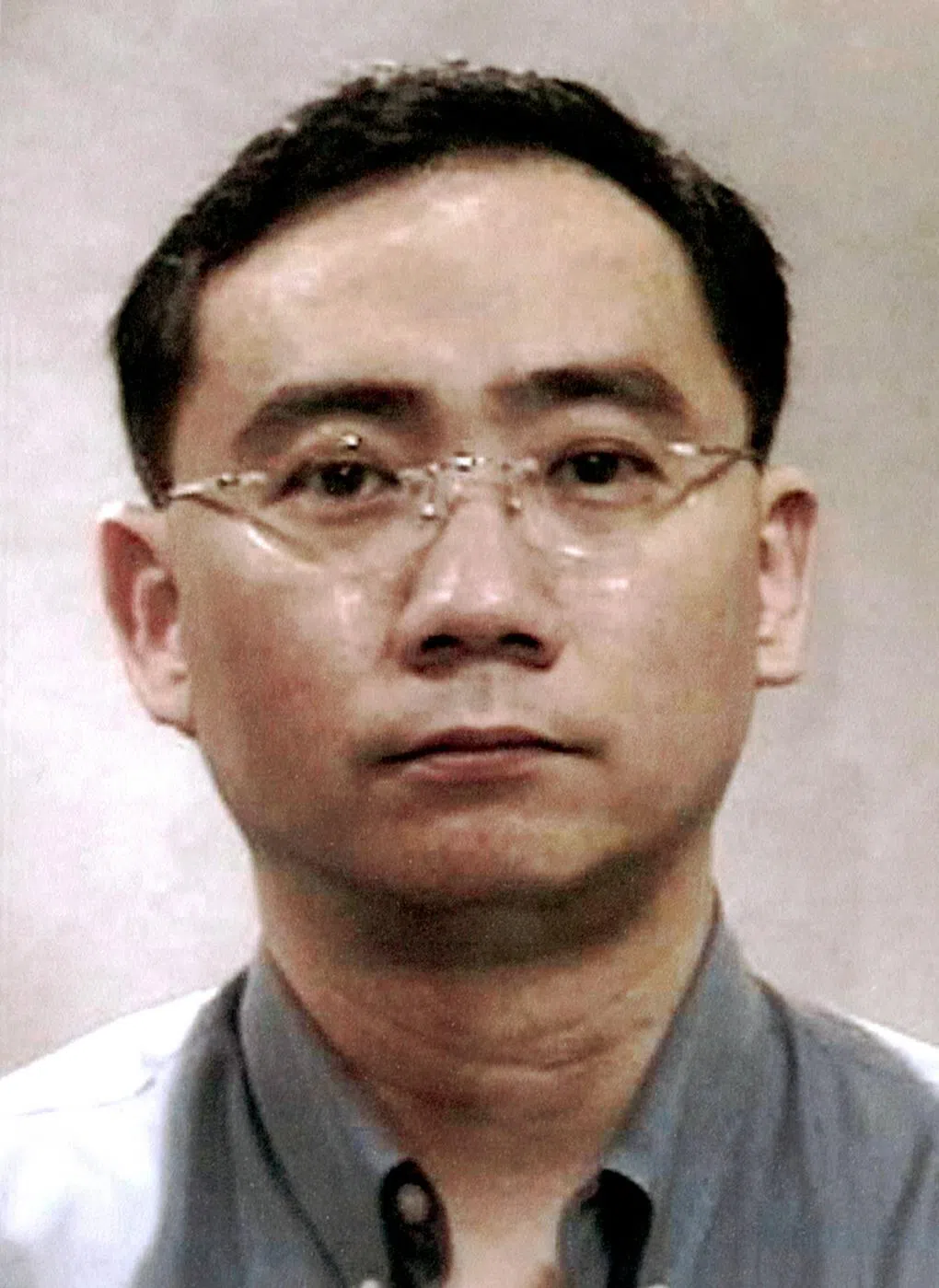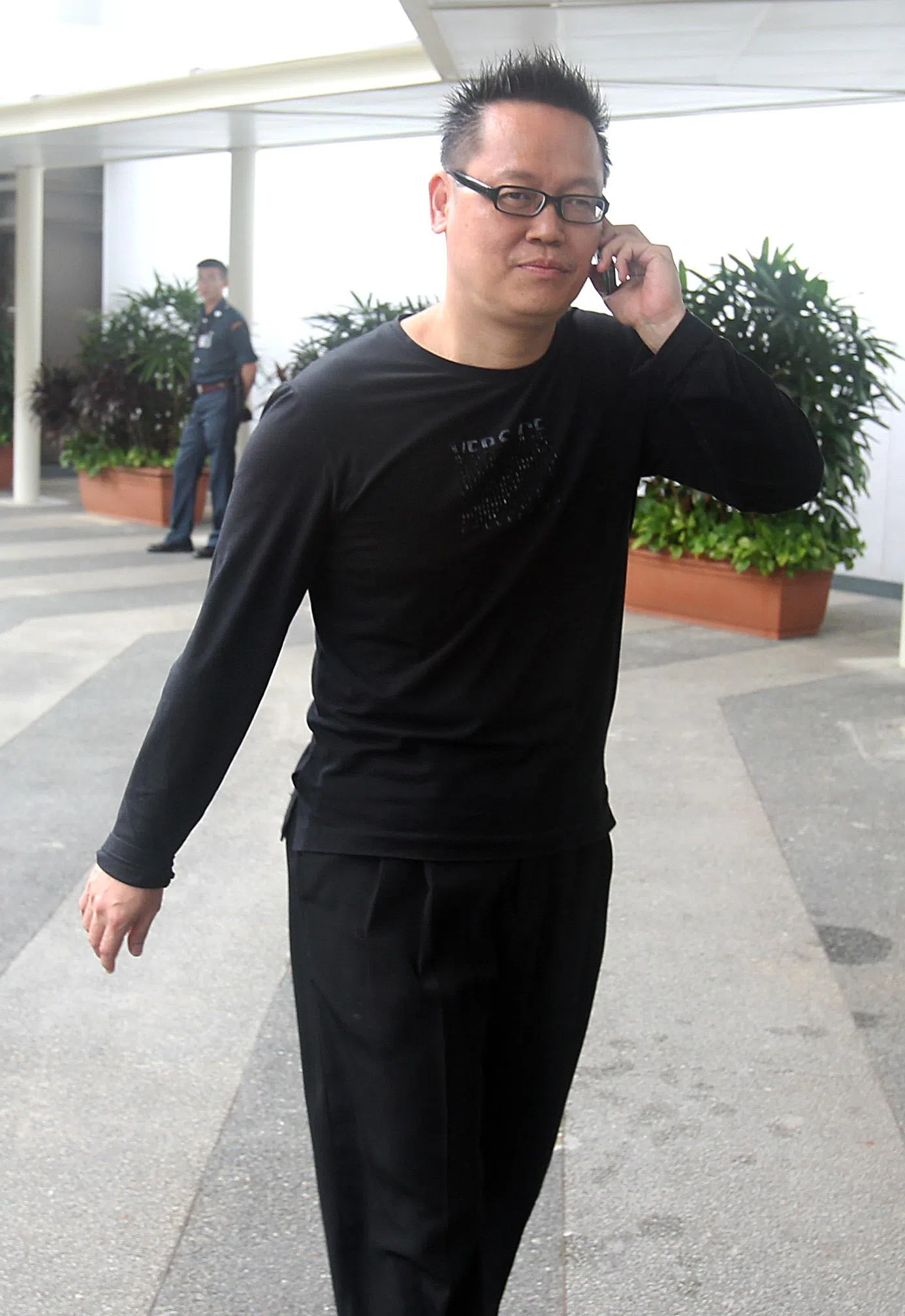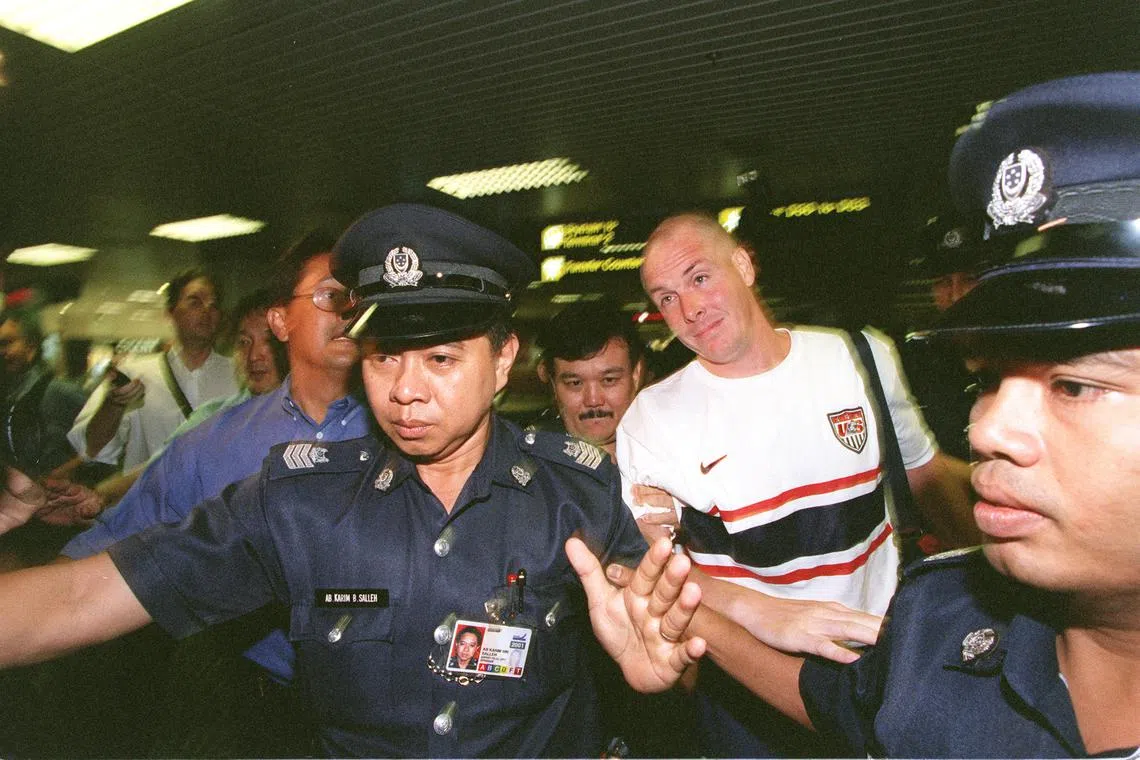Swindlers’ list: White-collar criminals who went big and paid for it
Sign up now: Get ST's newsletters delivered to your inbox

John Soh Chee Wen and Quah Su-Ling were found guilty of market manipulation that led to the October 2013 penny stock crash.
PHOTOS: LIANHE ZAOBAO, ST FILE
SINGAPORE - At the centre of a US$1.1 billion (S$1.45 billion) scam, deemed by prosecutors as one of Singapore’s largest investment fraud schemes, stands alleged nickel trading fraudster Ng Yu Zhi.
Ng, whose case is to be heard by the High Court, faces 105 criminal charges in relation to a nickel trading investment scheme offered by his companies, Envy Asset Management and Envy Global Trading.
He has been charged with white-collar crimes including cheating, criminal breach of trust, forgery, fraudulent trading and money laundering.
If convicted, he faces the spectre of a lengthy imprisonment exceeding 20 years.
Over 1,000 investors, including business people, lawyers and financiers, were allegedly swindled in the scheme, which touted average quarterly gains of 15 per cent.
High-profile investors among the list of victims include Vickers Venture Partners founder Finian Tan and former Law Society president Thio Shen Yi.
Ng’s case joins a list of some other spectacular white-collar crime cases in Singapore. Here is a look at some of them:
Penny stock crash masterminds John Soh Chee Wen and Quah Su-Ling
John Soh Chee Wen and Quah Su-Ling were found guilty of market manipulation that led to the October 2013 penny stock crash that wiped $8 billion in market capitalisation from the Singapore Exchange.
The duo had manipulated the share prices of three investment companies: Blumont Group, Asiasons Capital and LionGold Corp.
Soh and Quah had engaged in “wash trading” – a form of market manipulation in which a trader buys and sells a stock simultaneously. This creates an illusion of demand and artificially inflates the price of the stock.
The case was described as the “most serious case of stock manipulation in Singapore” by the prosecution.
On Dec 28, 2022, Soh was sentenced to 36 years’ imprisonment, while Quah was sentenced to 20 years’ jail.
Former Agritrade CFO Lim Beng Kim
Lim Beng Kim, former chief financial officer of commodities trader Agritrade International, defrauded over a dozen banks, causing almost US$500 million in losses.
According to the charge sheets, Lim deceived 16 financial institutions into believing that financial statements for Agritrade and its units were audited.
She also instructed her subordinate to insert a copy of the auditor’s signature into a document that was falsely claimed to be the audited statements.
On Jan 17, 2023, she was sentenced to 20 years’ jail for her crime.
Over a dozen individuals linked to the Shell oil heist
More than a dozen individuals were arrested after a series of raids uncovered the theft of about US$150 million worth of oil from Shell’s biggest global refinery over several years.
The Shell oil heist involved around 340,000 tonnes of gas oil that was siphoned from the oil major’s Pulau Bukom site in Singapore, in incidents dating back to 2014.
Prosecutors described it as the largest and most sophisticated marine gas oil heist in Singapore’s history.
The Shell oil heist involved at least three former Shell employees, and 12 former surveyors who took bribes to conceal the crime.
Former Shell employee Juandi Pungot was jailed for 29 years in March 2022 for siphoning nearly $128 million worth of gas oil, while another key player, Tiah Kok Hwee, was sentenced to over 16 years’ jail.
South-east Asia is a hot spot for illicit fuel trading, with its island-dotted waters providing cover for small-scale smuggling of oil products across borders. But the regularity and audacity of the thefts at Shell’s refining facility – some of which took place during working hours – made it stand out.
Former Asia Pacific Breweries (APB) finance manager Chia Teck Leng

The authorities estimated that Chia Teck Leng lost $62 million feeding his gambling habit.
PHOTO: SINGAPORE POLICE FORCE
Former APB executive Chia Teck Leng used his position as finance manager to swindle four foreign banks out of $117 million from 1999 to 2003.
At the time, the case was Singapore’s biggest involving commercial fraud.
Chia had been a compulsive gambler, and secretly led a double life as a high-rolling hustler with a lavish lifestyle. The authorities estimated that he lost $62 million feeding his gambling habit.
Chia submitted forged documents to open accounts in APB’s name, with himself as the sole signatory. He transferred money drawn from three of the accounts into a fourth, and then transferred the funds to his two personal accounts.
In 2004, he was sentenced to 42 years in jail – the longest for a case of commercial fraud.
Sunshine Empire’s James Phang Wah

James Phang Wah swindled some 20,000 Singaporeans of nearly $190 million through a Ponzi scheme.
PHOTO: SHIN MIN DAILY NEWS
Sunshine Empire owner James Phang Wah swindled some 20,000 Singaporeans of nearly $190 million through a Ponzi scheme from 2006 to 2007.
The scheme, which promised high yields through the company’s investment plan, tricked victims into purchasing nearly 26,000 “lifestyle packages” costing anywhere from $240 to $12,000.
Sunshine Empire paid earlier investors using the money paid up by new investors in what became Singapore’s biggest Ponzi scheme.
Of the huge sums paid to the company, only $21 million was recovered.
Phang was sentenced to nine years’ jail and a $60,000 fine.
Barings Bank’s Singapore-based trader Nick Leeson

Nick Leeson was caught in Germany and eventually extradited to Singapore, where he was sentenced to 6½ years in prison.
PHOTO: ST FILE
Singapore-based derivatives trader Nick Leeson brought down Britain’s oldest merchant bank, Barings Bank, in 1995 after betting on Japanese stock and bond derivatives
It was estimated at the time that Leeson, who wrote the book Rogue Trader about his experience, incurred losses amounting to US$1.3 billion.
The scale of those losses came as a shock to Barings and regulators. Their failure to salvage the crisis led to Barings’ eventual collapse.
Before the full scale of his crimes was exposed, Leeson fled Singapore. This sparked a global pursuit of around a week, before he was caught in Germany.
He was later extradited to Singapore, where he was sentenced to 6½ years in prison. THE BUSINESS TIMES


